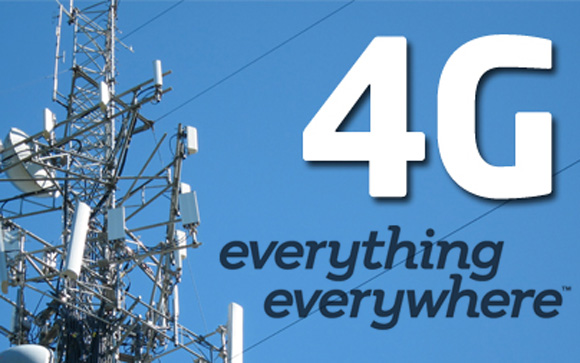The company that owns Orange and T-Mobile will launch superfast mobile internet in October, according to Sky sources, angering its rivals.
Telecoms regulator Ofcom approved an application by mobile operator Everything Everywhere (EE) to use its existing spectrum to deliver 4G.
I hope that the 4G network that is coming out in October is much more reliable then the previous 3G network there are still areas in the UK that customers cannot received a signal
But EE’ who s rivals say the decision gives it an unfair advantage, as they have to wait until the end of this year to buy new licences in an auction of frequencies.
A well-placed source at EE told Sky News the launch of the next generation of mobile broadband would be part of a rebrand in October, which will see the company renamed to incorporate its 4G capabilities.
All new customers will join EE after the rebrand, the source said – not Orange or T-Mobile.
The source added that from around March 2013 the Orange and T-Mobile brands will be dropped and all existing customers will be migrated to EE.
In response to the comments, an EE spokesperson said: “It’s well known that we ran a brand review last year. The outcome of that brand review is confidential.
“However what we can say is that we remain committed to our hugely successful brands Orange and T-Mobile and continue to invest in them for the foreseeable future.
“Any suggestion otherwise is entirely speculative.”
Ofcom gave EE the go-ahead to launch 4G – which is seen as crucial for video, gaming and downloading on your phone – any time after September 11 this year.
It said that allowing EE to use its existing 1800 MHz spectrum in this way will “deliver significant benefits to consumers”.
But rival mobile company Vodafone said it was “frankly shocked” by Ofcom’s decision.
“The regulator has shown a careless disregard for the best interests of consumers, businesses and the wider economy through its refusal to properly regard the competitive distortion created by allowing one operator to run services before the ground has been laid for a fully competitive 4G market,” a company statement said.
And mobile company Three agreed that the ruling could make the market less competitive.
“Liberalisation of 2G spectrum to date has distorted the competitive landscape in the UK, which ultimately harms consumers,” Three said.
“Further liberalisation without addressing competition issues could make that distortion worse.”
After the fourth generation auction at the end of this year, at least 98% of people across the UK should have access to the network.










